30+ YEARS IN BUSINESS
WE SERVE ALL OF NORTHERN VIRGINIA
ALL WORK GUARANTEED
Animal Control
Pest Control

Maintenance Program

Cleanup & Restoration

Damage Repair
Summit handles wildlife removal when their behavior becomes too destructive, dangerous, or they chew and gnaw their way into your home. We employ advanced technology and the most effective techniques to safely and humanely remove animals.
Pests are nuisance animals or insects and are not everyone’s favorite houseguest. They may bite, destroy food crops, damage property, carry disease or otherwise make our lives more difficult. Summit is your local expert for safely eliminating them from your home.
Squirrels will tear up insulation to use for their nests, defecate, and make obnoxious noises day and night. Squirrels can chew and gnaw on wooden support beams, walls, and electric wiring. Squirrels tend to run away and hide from humans and pets.
Raccoons in Northern Virginia have adapted to living alongside humans very well. Of course a raccoon’s most descriptive features are their blackish rings around their body and the mask they wear on their face. The amount of rings on a raccoon ranges from 5-7 depending on the individual raccoons size.
At Summit Wildlife Removal, we are a family owned and operated business that is your local expert for Wildlife Control & Pest Control Services in Fairfax, Alexandria, Arlington, and throughout Northern Virginia.
Whether you need to remove a bat from your attic, a skunk from your basement, a raccoon from your crawl space, or a swarm of bees from your back porch, we are the company to call. SWS offers 24-hour animal control, 7 days a week.
Many animals and their habitats are protected under local and federal laws, making it illegal to trap and move animals from your home without proper licensing and training. Our SWS technicians are fully licensed to handle animal control situations within the framework of these laws. We also eliminate pests that are not protected under federal and local laws.
Fairfax, Alexandria & Arlington, VA
Summit Wildlife Removal
Phone: 703-884-2124
5 Le Way, Suite 125 Fredericksburg, VA 22406
Licensed, Bonded and Insured.
*Free Estimates in VA Only
* restrictions may apply
Copyright © 2024 Summit Wildlife Removal | All rights reserved.
All content and graphics on this web site are the property of Summit Wildlife Removal.